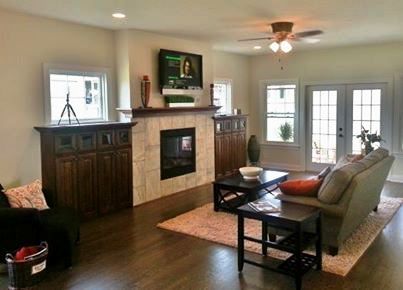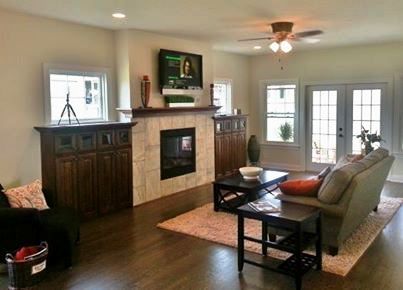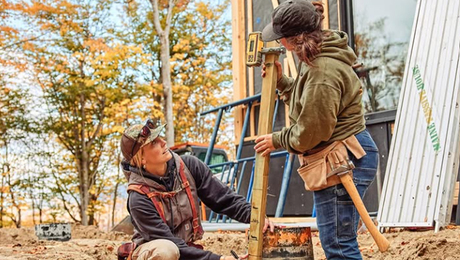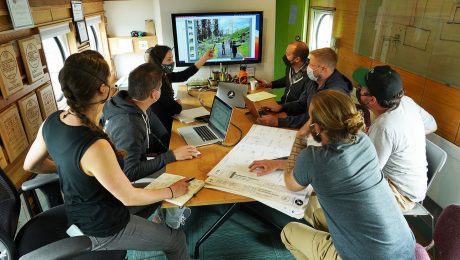
Joe Rongisch was perhaps my best hire. It didn’t surprise me when he went from an employee to become a competitor–and quickly surpass me. What surprised me was that he did it during the worst economic crises to hit the construction industry, starting his home-building business in late 2008.
I’ve wanted to feature Joe in this series on successful business strategies for about a year, but it’s been tough getting a hold of him. Joe’s very busy building and remodeling. Maybe he’s too busy for an interview with his ex-boss. Or so I thought, until I tried contacting him through Facebook and he replied immediately. We chatted over several nights via instant messaging, and I learned something of how and why Joe’s young company, Vantage Design & Construction, has done so well.
The Millennial Method
The old adage, don’t ever mix business and friendship, does not apply in the new world of social media, where business and social life often share a single, digital platform. If you look on Joe’s Facebook page you’ll see what I’m talking about. He has 327 “likes” and 547 “friends” at last count, including me. His profile blends business, family, and friends under one unifying theme: Life.
The cover photo on Joe’s Facebook page features one of the company’s recent signature designs, a craftsmanlike ranch. You’ll note Joe decided to place the word “design” up front in his company name, Vantage Design & Construction, with the word construction in second place. This means the construction he does serves to fulfill attractive design, rather than putting the focus on materials and labor. This gives the company the ability to distinguish itself as more than just another workaday builder.
Immediately below the cover shot, customers get to weigh in with a company rating. It currently stands a 4.7 out of a possible 5 stars. This signals two things, the company gets high ratings, and they are honest, still striving to be perfect.
Continue to scroll down the page, and you’ll learn that Jon Baker, a crew member, just had a birthday, and Joe’s wife Ana sends a congratulatory message. The postings move elegantly from the commercial to the personal.
Updated about every three days with project photos, tips, and design ideas, Joe’s Facebook page conveys a sense of friendly, talented, and hardworking people. The kind anyone would like to build a home with. Joe posts pictures to Facebook almost in real time. “People like to see the different stages of construction,” he says. And this brings customers and their friends back again and again to see their projects highlighted.
Joe uses all of the popular social-media platforms, including Facebook, Twitter, and LinkedIn to send out greetings, advertise discounts, and post his company and family updates. “I would say the exposure is great and we get quite a few jobs this way,” Joe told me.
Joe also sponsors Habitat for Humanity, participating in an annual blitz-build for the charity. Every year he enters his company in what amounts to an annual, citywide popularity contest, having successfully campaigned and won Omaha Magazine‘s “Best in Omaha” for the home-builder category two-years running. Unlike others that struggle to make sense of new media, Joe thrives in the social realm and knows how to leverage it to his advantage.
Learning from the Past
Having worked with Joe as my chief project manager, I already knew something of his skill set before we began the interview. I knew he had studied engineering and graduated with a degree in construction management. I knew he had expertise in computer applications and had worked in key positions for some of the area’s largest and most-storied homebuilders. I hoped he would open up during the interview and criticize his old bosses, including me, for their old-school business methods and contrast this with his polished, millennial-management approach. But he didn’t.
Joe consistently spoke highly of his old bosses and what he learned from each one. I learned only recently, reading a Pew Research Center study on the millennials, that this attitude of respect is characteristic of Joe’s generation. Millennials by and large admire and get along with us old dogs despite our old-fashioned ways. In fact, the closest suggestion of criticism came with a hint of nostalgia.
Describing a former boss, Joe told me: “He was old school. The most old-school person I have worked with. He ran everything with a pencil and paper: Scheduling, billing, notes, to do lists, plans, etc. all of it written down. It worked great, but took forever. He carried a clipboard, Zippo, and cigarettes everywhere. Never carried a cell phone, wrote down messages, and used the first two hours of every day making calls. His processes and procedures were great. They worked, and worked well. I am glad I had the chance to work that way, because it made things so much easier with technology. It’s kind of like practicing shooting pool one-handed … once you get good at it, playing with both hands is almost like cheating!“
Joe did criticize the extreme opposite approach, having also worked for one of the most technologically oriented commercial firms in Omaha: “They tried to use too many programs, and had too many people involved in every step. There was a computer program for scheduling, one for estimating, one for billing, and there was one person in charge of each program,” which forced the project manager to focus almost as much on the process of tracking jobs as on the job site itself. “The office work was a full-time job, which left little time to get to your projects.“
When I pressed Joe about how he applies the lessons learned from the old-guard homebuilders he worked with to his Vantage Design & Construction Company, he told me: “I have taken some of the good and tried to eliminate some of the bad. I saw the errors that took my old bosses down with the recession, and I now try to implement a structure that will avoid these mistakes. I try to stay diverse so that when the housing market tanks again, we can easily shift our focus to remodeling. We did 55 remodeling projects last year. If the remodeling market dries up, we will focus on new homes and condos. We are trying to grow our commercial presence as well. But mostly I try to stay pretty laid back about things. I don’t let issues at work sway my mood. My goal for the company is not just to get bigger and bigger until I risk losing control over quality. I would be perfectly happy with my company staying the size it is now as long as I can be proud of what we do.“
Fine Homebuilding Recommended Products
Fine Homebuilding receives a commission for items purchased through links on this site, including Amazon Associates and other affiliate advertising programs.

Affordable IR Camera

8067 All-Weather Flashing Tape

Handy Heat Gun




























